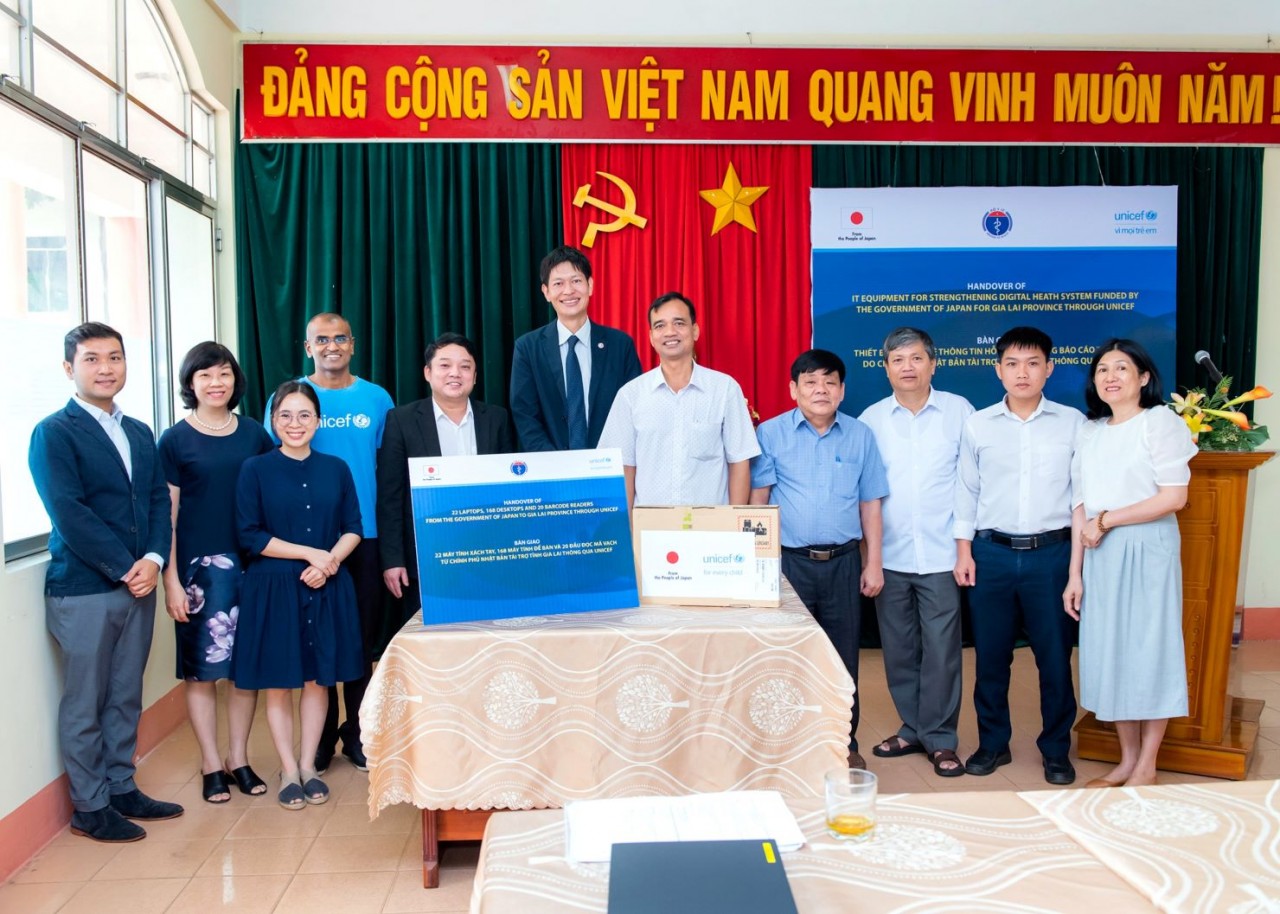
Japan and UNICEF support Viet Nam to strengthen the digital health system
Latest
The shared goal is to ensure the availability of a comprehensive set of data for every child, where critical real time information on immunisations, health challenges, child and maternal health information is consolidated in one compatible digital system, regardless of the child’s location or even of the lost paper records.
 |
| The handover ceremony of 22 laptops, 168 desktops, and 20 barcode readers from the Government of Japan and UNICEF to Gia Lai province on November 7. (Nguồn: UNICEF) |
22 laptops, 168 desktops, and 20 barcode readers were distributed in Gia Lai province on November 7, as part of the support from the Government of Japan and UNICEF to strengthen the digital health system in Viet Nam. This contribution to the digital transformation of the health system includes a total of 158 laptops, 803 desktops, and 187 barcode readers. The supplies have been distributed to several departments of the Ministry of Health and seven provinces among the most disadvantaged to enhance the use of information technology in maternal and child health management, as well as reproductive health.
Speaking at the handover event, Mr. Sasaki Shohei, First Secretary of the Government of Japan said: "This project is a collaborative effort with UNICEF to enhance the health information management system, beginning with vaccination information data. An aid package totaling 1,267 million Japanese Yen has been allocated for Southeast Asian countries, of which 290 million Yen designated for Viet Nam.”
“We commend the Vietnamese Government's proactive approach to nationwide healthcare digitization, which aims at improving healthcare service delivery. The Government of Japan hopes that the equipment donated as part of this initiative will serve various purposes in the target provinces, including Gia Lai. We also aspire to see further digital transformation within the healthcare sector throughout Viet Nam, contributing to the enhancement of the healthcare service delivery system," he concluded.
Despite the development and implementation of numerous health information management software solutions, compatibility issues persist. Furthermore, some medical facilities do not have the necessary information technology (IT) equipment for collecting and reporting critical data related to maternal healthcare and vaccinations, including those for COVID-19. As a result, the data is neither compiled nor presented in a way that facilitates real-time decision making, thereby compromising its quality.
"In recent years, maternal and child healthcare has been consistently acknowledged as a vital component of Vietnam's socio-economic development strategy. It plays a key role in improving the quality of life for its citizens, a fact underscored by the Party and State of Viet Nam. With the support we have received today, we are confident that this project will significantly enhance the quality of data, boost the management capabilities of the child healthcare system, and ultimately improve the health and welfare of women and children. This handover ceremony signifies a significant step forward in this mission", stated Mr. Tong Tran Ha, Deputy Director of the Department of Maternal Health and Children, Ministry of Health.
| "This project includes improving the functionality and interoperability of existing digital health software; offering comprehensive training to healthcare workers, particularly those at the community level to enable proficient use of medical statistical information technology software; and ensuring that specialized medical facilities and community health stations are equipped with all necessary information technology tools for data entry and reporting related to maternal and child health.” (Mr. Maharajan Muthu, UNICEF Viet Nam Chief of Child Survival and Development) |

















